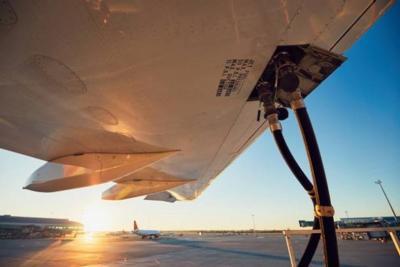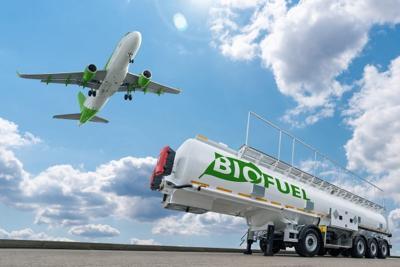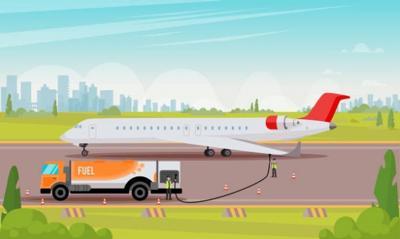Amplifying the Obvious
Notwithstanding global initiatives to raise production of biofuels and drive down the cost of such, Sustainable Aviation Fuel (SAF) is certain to remain significantly more expensive than kerosene—so states International Air Transport Association (IATA) head Willie Walsh.

Mr. Walsh, in open contradiction of capitalism’s fundamental precepts, further posited the relatively high price of SAF will not dissuade air-carriers from their carbon emission targets.
Founded in 1945 and consisting, in 2023, of three-hundred airlines—primarily major carriers—the International Air Transport Association has been alternately praised as an eminently effective trade association and disparaged as a cartel intent upon normalizing price fixing within the aviation industry.
IATA previously estimated SAF stood to account for as much as 65-percent of the reduction in emissions requisite the actualization of the widespread but nebulous aviation industry aspiration to reach net-zero emissions by 2050.
Speaking at a conference in the Portuguese capital city of Lisbon, Walsh remarked: "I truly believe SAF will always be priced at a premium to kerosene. I believe the industry is ready to embrace that. The industry recognizes the problem, is doing everything it can to address it, and we will achieve the targets because … there isn't an option here."

Walsh conceded he expected the price of SAF to decrease when deliveries of the stuff surpassed the “tiny volumes” currently being produced.
Walsh contended the Asian air-travel market’s slow post-pandemic recovery weighed on the global airline industry, but maintained demand remained generally strong, and air-carriers tenors vis-à-vis the coming year inclined toward optimism.
"That recovery [in Asia] is gathering pace,” Walsh declared in Lisbon, “but there are some issues that will have an impact on whether it can return back to the 2019 levels. I think the demand is strong."
Walsh disclosed most global air-travel markets had recovered to 2019 levels—excepting Asia, which remains thirty-to 35-percent below its pre-COVID passenger volumes and revenues.
International Airlines Group CEO Louis Gallego—in emulation of Walsh’s paroxysm of naiveté—asserted decarbonization would drive up the cost of travel, but expressed hope airlines would maintain affordable ticket prices.
"That's the challenge,” Gallego averred, “but we don't have any alternative but to meet the targets. What we need is production of SAF. It doesn't make sense to bring SAF from the United States and put it in our planes in Europe."

Asked about the rising price of oil and conventional aviation fuels, Gallego opined the hedging policy enacted by IAG—a joint venture of U.K. and Spanish flag-carriers British Airways and Iberia, and ownership entity of airlines BMI, Vueling, and Aer Lingus—covered approximately seventy-percent of the aforementioned carriers’ 2023 fuel costs.
Biofuel is the best short-term answer to the aviation industry’s sustainability conundrum. The means to produce it are proven and its compatibility with existing engine technology is undisputed. Whether or not biofuel can be rendered economically feasible is largely a question of choice. The more biofuel global airlines demand, the more energy companies will invest in producing it. At present, despite a great deal of lip-service and PR posturing, demand for SAF remains tepid. Limited demand adversely impacts investment to drive the creation of economies of scale to reduce per-unit cost of production. It’s a vicious cycle. So long as petroleum jet-fuel remains cheap and plentiful, SAF will amount to little more than an ornate hook on which to hang good intentions.
 ANN's Daily Aero-Term (05.16.24): Instrument Runway
ANN's Daily Aero-Term (05.16.24): Instrument Runway ANN's Daily Aero-Linx (05.16.24)
ANN's Daily Aero-Linx (05.16.24) Airborne 05.15.24: Ghost Sq MidAir, B-2 Junked, Dream Chaser Readies
Airborne 05.15.24: Ghost Sq MidAir, B-2 Junked, Dream Chaser Readies Airborne 05.10.24: Icon Auction, Drunk MedEvac Pilot, Bell ALFA
Airborne 05.10.24: Icon Auction, Drunk MedEvac Pilot, Bell ALFA Airborne Affordable Flyers 05.16.24: PRA Runway, Wag-Aero Sold, Young Eagles
Airborne Affordable Flyers 05.16.24: PRA Runway, Wag-Aero Sold, Young Eagles





